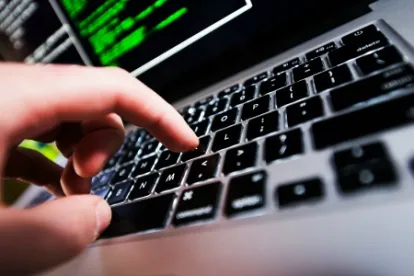As the United States and the rest of the world hunker down in their homes to slow the spread of the novel coronavirus (COVID-19), many organizations have implemented “working-from-home” procedures that are designed to protect the health of the employees. Working-from-home, however, presents heightened threats to the cybersecurity of benefit plans, including the plan’s assets and employee data that is collected, transmitted, and stored with regard to employee benefit plans. Plan sponsors and fiduciaries have asked about the particular risks that working-from-home might present to the protection of sensitive data and whether there are additional proactive measures they can take to reduce those risks.
Working-from-home creates a risk that employees may take shortcuts to ease working on personal devices or outside of the organization’s regular environment. For example, employees might:
- send emails or other documents that contain protected health information or other personally identifiable information to their personal email addresses, which then may be automatically uploaded to their cloud-storage accounts;
- upload sensitive data to their personal electronic devices that are unsecured or otherwise poorly protected; or
- physically take sensitive information home, either printed in hard copy or on flash drives, which can be lost or negligently shown to other individuals who are also working-from-home.
In times like these, cyberattacks are more prevalent. On March 16, 2020, for example, in the midst of responding to COVID-19, the U.S. Health and Human Services Department suffered a cyberattack on its computer systems. Similarly, hackers seeking to exploit the chaos surrounding COVID-19 can send out phishing emails purporting to provide vital company policy or coronavirus updates, through which they request personal or essential login information, in turn providing the hackers with the opportunities to infiltrate the organization’s networks and databases.
It is impossible, of course, to predict or protect against every type of cyberattack, but we have often recommended that employee benefit plans develop benefit plan cybersecurity policies that include the training of employees to safeguard data, the analysis of the type of data collected and the interaction thereof, and the utilization of cybersecurity insurance and other security technology. (See Considerations for an Employee Benefit Plan Cybersecurity Policy.) With the rise in employees working-from-home, here are some recommended actions that plan sponsors and fiduciaries can take to protect sensitive data related to benefit plans:
- send out reminders to employees to be extra vigilant in these times;
- provide access to cybersecurity training or webinars so that employees are reminded how to identify various phishing scams and similar online attacks;
- consider reviewing existing policies and services agreements and implementing additional policies and procedures that can provide added protections and safeguards to protect employee data and benefit plan assets, and to prevent foreseeable security breaches.
Finally, in addition to the above, it is prudent for plan sponsors and fiduciaries to regularly communicate with internal IT departments and outside service providers to ensure that all are engaging in the necessary security measures and ongoing diligence to protect sensitive plan-related data especially during this crisis period.



 />i
/>i
